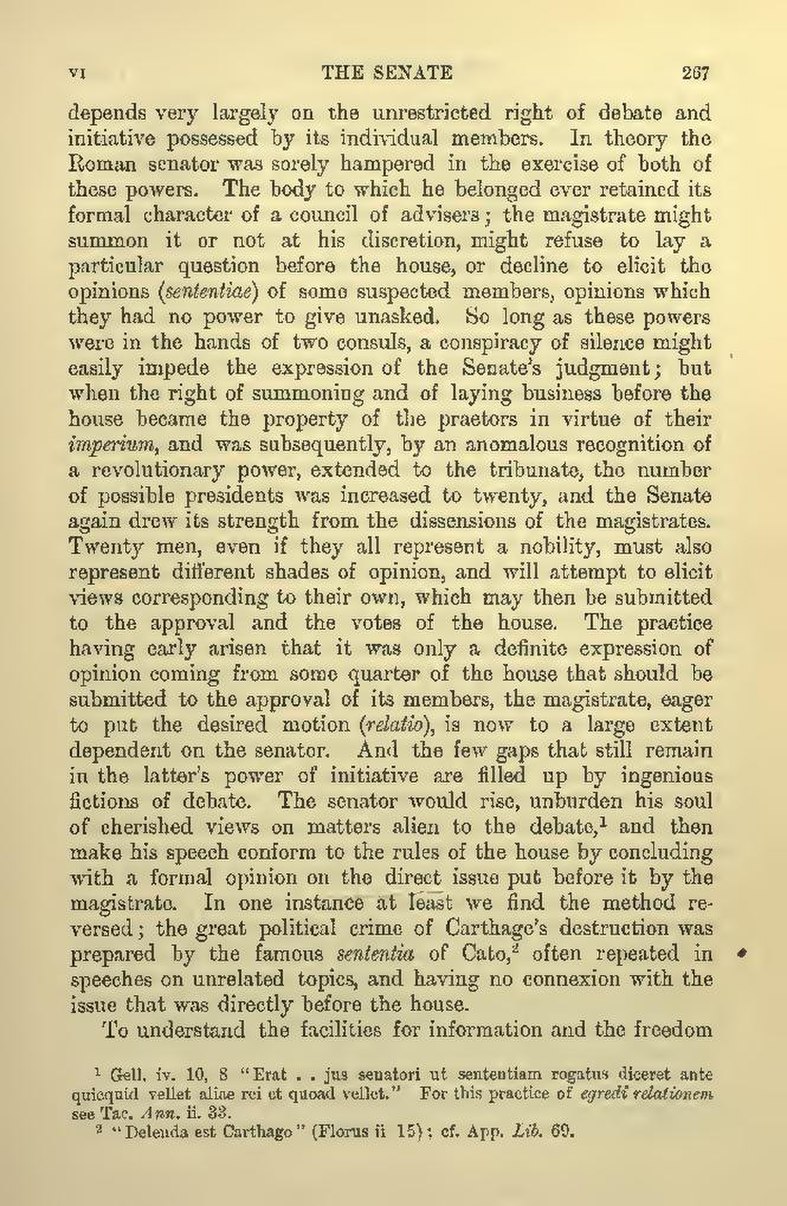depends very largely on the unrestricted right of debate and initiative possessed by its individual members. In theory the Roman senator was sorely hampered in the exercise of both of these powers. The body to which he belonged ever retained its formal character of a council of advisers; the magistrate might summon it or not at his discretion, might refuse to lay a particular question before the house, or decline to elicit the opinions (sententiae) of some suspected members, opinions which they had no power to give unasked. So long as these powers were in the hands of two consuls, a conspiracy of silence might easily impede the expression of the Senate's judgment; but when the right of summoning and of laying business before the house became the property of the praetors in virtue of their imperium, and was subsequently, by an anomalous recognition of a revolutionary power, extended to the tribunate, the number of possible presidents was increased to twenty, and the Senate again drew its strength from the dissensions of the magistrates. Twenty men, even if they all represent a nobility, must also represent different shades of opinion, and will attempt to elicit views corresponding to their own, which may then be submitted to the approval and the votes of the house. The practice having early arisen that it was only a definite expression of opinion coming from some quarter of the house that should be submitted to the approval of its members, the magistrate, eager to put the desired motion (relatio), is now to a large extent dependent on the senator. And the few gaps that still remain in the latter's power of initiative are filled up by ingenious fictions of debate. The senator would rise, unburden his soul of cherished views on matters alien to the debate,[1] and then make his speech conform to the rules of the house by concluding with a formal opinion on the direct issue put before it by the magistrate. In one instance at least we find the method reversed; the great political crime of Carthage's destruction was prepared by the famous sententia of Cato,[2] often repeated in speeches on unrelated topics, and having no connexion with the issue that was directly before the house.
To understand the facilities for information and the freedom
